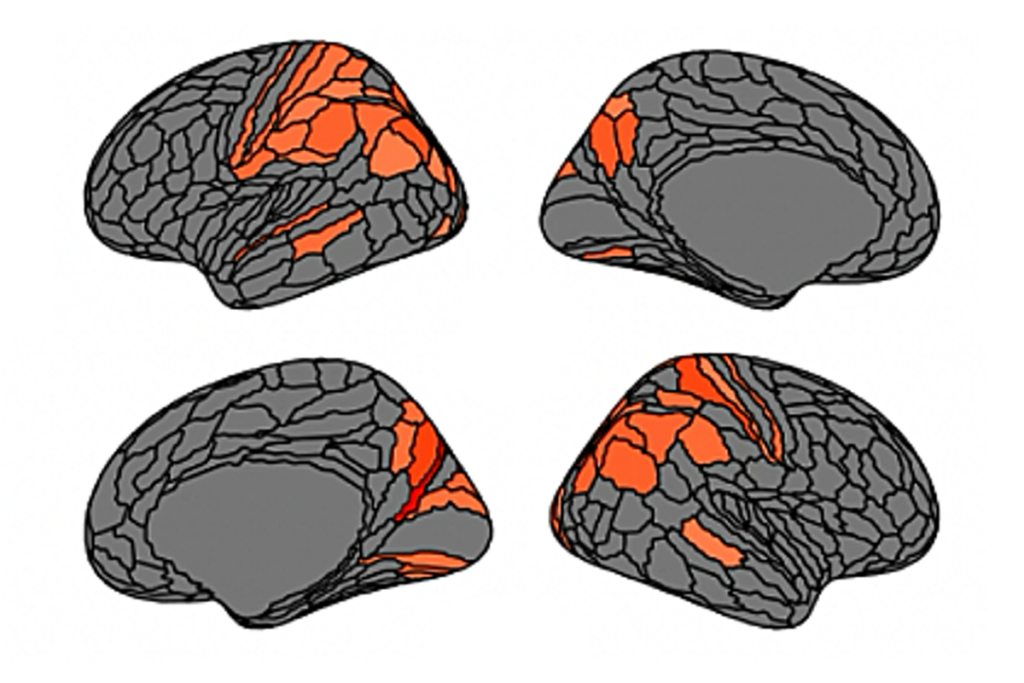Spectrum Launch
Recent articles
Cortical myelination; early vocabulary; EEG in tuberous sclerosis
Here is a roundup of autism-related news and research spotted around the web for the week of 27 January.

Cortical myelination; early vocabulary; EEG in tuberous sclerosis
Here is a roundup of autism-related news and research spotted around the web for the week of 27 January.
Running a lab like a startup company: Q&A with Dorothy Tse
Adopting an entrepreneurial mindset pushed Tse to define her research priorities as she launched her lab.

Running a lab like a startup company: Q&A with Dorothy Tse
Adopting an entrepreneurial mindset pushed Tse to define her research priorities as she launched her lab.
How to stay afloat in the flood of scientific literature
A combination of automation and social curation can help keep early-career researchers from drowning in the sea of scientific publications.

How to stay afloat in the flood of scientific literature
A combination of automation and social curation can help keep early-career researchers from drowning in the sea of scientific publications.
How to make the most of your postdoc experience
Scientists at different career stages offer advice for new postdoctoral researchers — that and more in this month’s issue of Spectrum launch.

How to make the most of your postdoc experience
Scientists at different career stages offer advice for new postdoctoral researchers — that and more in this month’s issue of Spectrum launch.
Unwritten rules of tenure
Academics are not always aware of the standards — both explicit and implicit — that are used to assess them for promotion. We explore these expectations and more in this month’s issue of the Spectrum Launch newsletter.

Unwritten rules of tenure
Academics are not always aware of the standards — both explicit and implicit — that are used to assess them for promotion. We explore these expectations and more in this month’s issue of the Spectrum Launch newsletter.
Spectrum Launch: Transitioning to industry with Hien Zhao
Zhao says her graduate and postdoctoral training prepared her to transition to her job at the biotech company Ionis Pharmaceuticals, where she works to find treatments for Parkinson’s disease and other conditions.

Spectrum Launch: Transitioning to industry with Hien Zhao
Zhao says her graduate and postdoctoral training prepared her to transition to her job at the biotech company Ionis Pharmaceuticals, where she works to find treatments for Parkinson’s disease and other conditions.
Spectrum Launch: Four tips for advancing your career via social media
Researchers also share insight into navigating the academic job market and “everything you wanted to know about running a lab but were afraid to ask.”

Spectrum Launch: Four tips for advancing your career via social media
Researchers also share insight into navigating the academic job market and “everything you wanted to know about running a lab but were afraid to ask.”
Spectrum Launch: Demystifying academia with Laurel Gabard-Durnam
The Northeastern University psychology professor’s website offers a wealth of resources about how to navigate an academic career.

Spectrum Launch: Demystifying academia with Laurel Gabard-Durnam
The Northeastern University psychology professor’s website offers a wealth of resources about how to navigate an academic career.
Spectrum Launch: The hidden costs of conference travel
Most early-career researchers have to foot the bill for academic conferences and get reimbursed once they return. But not everyone can afford to wait for that payment.

Spectrum Launch: The hidden costs of conference travel
Most early-career researchers have to foot the bill for academic conferences and get reimbursed once they return. But not everyone can afford to wait for that payment.
Spectrum Launch: How early-career researchers can use ChatGPT to boost productivity
The new tool may pose challenges for the scientific community, but used wisely, it can help researchers save time and resources.

Spectrum Launch: How early-career researchers can use ChatGPT to boost productivity
The new tool may pose challenges for the scientific community, but used wisely, it can help researchers save time and resources.
Explore more from The Transmitter
Dendrites help neuroscientists see the forest for the trees
Dendritic arbors provide just the right scale to study how individual neurons reciprocally interact with their broader circuitry—and are our best bet to bridge cellular and systems neuroscience.

Dendrites help neuroscientists see the forest for the trees
Dendritic arbors provide just the right scale to study how individual neurons reciprocally interact with their broader circuitry—and are our best bet to bridge cellular and systems neuroscience.
Two primate centers drop ‘primate’ from their name
The Washington and Tulane National Biomedical Research Centers—formerly called National Primate Research Centers—say they made the change to better reflect the breadth of research performed at the centers.

Two primate centers drop ‘primate’ from their name
The Washington and Tulane National Biomedical Research Centers—formerly called National Primate Research Centers—say they made the change to better reflect the breadth of research performed at the centers.
Post-infection immune conflict alters fetal development in some male mice
The immune conflict between dam and fetus could help explain sex differences in neurodevelopmental conditions.

Post-infection immune conflict alters fetal development in some male mice
The immune conflict between dam and fetus could help explain sex differences in neurodevelopmental conditions.